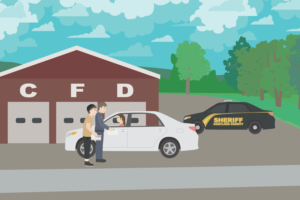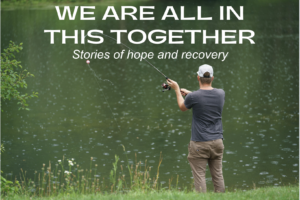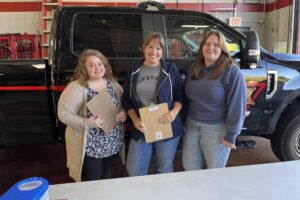STAP Marks 9 months of Offering Mobile Services in Cortland County
The Southern Tier AIDS Program (STAP) has been providing comprehensive HIV/AIDS services, among many other resources, to individuals in the Southern Tier region for almost 40 years. Residents of Cortland County have had access to these services, free of charge. In 2021, STAP was awarded a grant from the CDC and NYS Department of Health to help fight the opioid crisis in rural areas. With this grant, STAP created a mobile unit, which provides harm reduction services free of cost to residents in our region.
The STAP mobile unit offers a wide range of services, including Narcan training, syringe exchange services, safer sex supplies, linkage and referral services, and HIV/HCV testing. This mobile unit is located in an unmarked white van, providing a safe place for people to seek services unnoticed. The mobile unit can meet individuals at any location, intending to provide services to those as long as needed. Both pre-registered and new participants are welcome to join this program.
What Makes this Program so Important
We spoke with the STAP mobile unit team to gain some insight into the importance of this program and why it is unique to the area. As there is no brick-and-mortar syringe exchange program based in Cortland County, residents rely on these mobile services.
Dean O’Gorman, a Harm Reduction Specialist for STAP, explained the value of having this unit within the program:
“The STAP mobile unit is so unique because it truly meets people where they are at, and gives them connections to services they would not normally be able to connect to without the struggles of trying to travel.”
Kurt Kleefeld, Center for Disease Control (CDC) Rural Health Crisis (RHC) Manager and Regional Care Coordinator (RCC) for New York MATTERS, explained why this mobile unit is so crucial to helping the lives of individuals in rural areas like Cortland County:
“The mobile unit bypasses many of the conventional barriers to people accessing services: participants don’t need a car, money, bus tickets, to dress up for a public place, stigmatic atmosphere, extra time, child care, and all the other things that get in the way. The mobile unit can drive up to an apartment, meet someone in their home, meet someone who doesn’t have a home.”
Mobile services are becoming more common across the healthcare system and having this regular service through STAP fills a needed gap in the community.
The Community’s Response
We asked the team how the community is currently responding to this new type of the program that STAP is offering, and overall, it seems to have been received well.
Barbara Lacey, RN, BSN, responded:
“Every week we are getting more participants that are inquisitive about testing, MAT [medication-assisted treatment], and nursing services. This tells me that the team has been accepted and is important to our participants.”
O’Gorman also stated that they have even had participants flag down the mobile unit van to ask for Narcan replacements. These accounts have shown the team that the mobile unit is being viewed as a positive resource in the community, and individuals are actively seeking out their assistance.
What Drives You as Staff Members?
We then asked the staff members some important personal questions: why are you doing this work? What drives and inspires you to continue doing this?
The overarching reason: to help others find a safe place to go to and help them through their struggles. Many of the employees have had first-hand experiences seeing the hardships of addiction, and strive to make a difference in the lives of others with these same struggles.
Patrick Hadfield stated:
“I do this work for so many reasons, the most obvious is losing my dad just a few months before I took this job. I do this because I watched friends and family suffer when I was a kid. I do this because ‘I know how it feels to be at war with a world that never loved me’. I do this because when the world looks too dark and you can’t find the way, I want to hold the light and help you on your journey.”
Rachel Lacey, Harm Reduction Specialist, is also using her past personal struggles with addiction to help others. She explained:
“As someone in recovery from my addictions, I find it helpful to help others in active addiction. I think more people should be open to harm reduction as a path to recovery. In my lifetime, I’ve seen so many people not be able to get the supplies they need to stay safe in their addiction. I really love that I can be on a team that provides others the chance to be safe and that I can be there for them as someone they can talk to when they are struggling.”
The mobile unit team hopes to see the van increase services and be fully operational within Cortland County in the future to be able to help as many people as possible in rural areas. For more information about STAP and the services they provide, visit www.stapinc.org or call 1-800-333-0892 to speak with a staff member.





